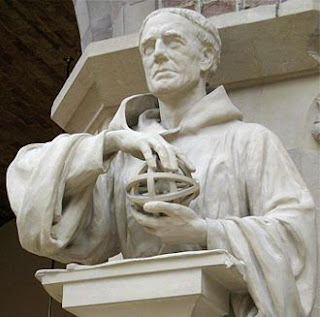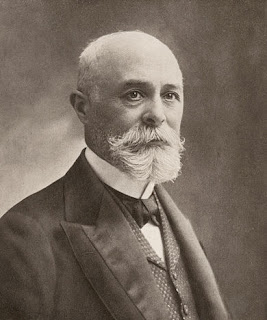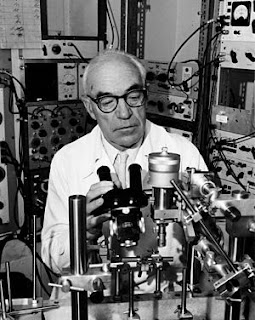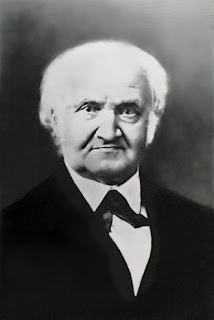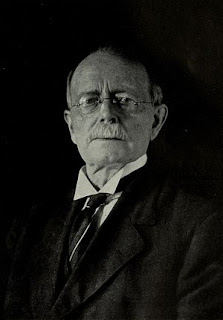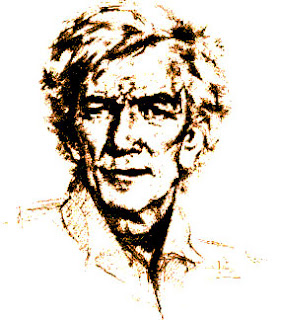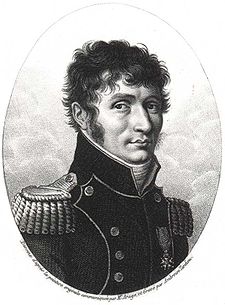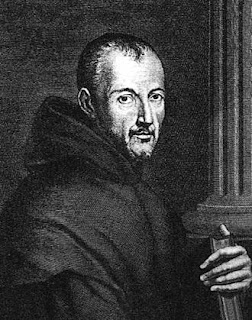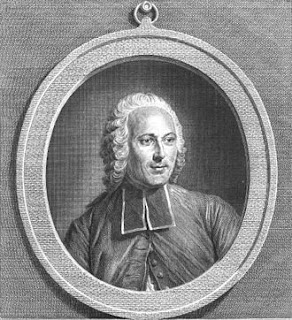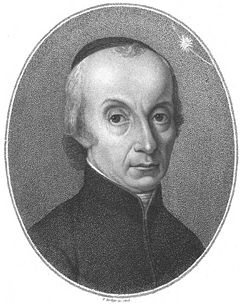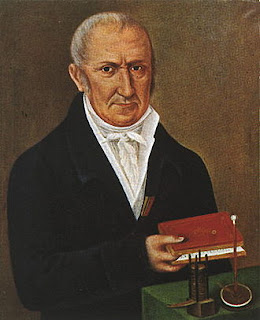https://en.wikipedia.org/wiki/List_of_Catholic_scientists
|
|
There is a proposal
that portions of this article be split into a new article titled List of Roman
Catholic cleric-scientists. (Discuss) (June 2014)
|
|
|
There is a proposal
that portions of this article be split into a new article titled List of Jesuit
scientists. (Discuss) (June 2014)
|
Italian Mathematician who wrote on differential and integral
calculus
Patron saint of natural sciences
One of the main discoverers of electromagnetism
Austrian physician, first to use percussion as a diagnostic
technique in medicine
French astronomer who contributed to the development of the
telescopic micrometer
Italian scientist, noted for contributions to molecular theory
and Avogadro's Law
Franciscan friar and early advocate of the scientific method
Professor in the Department of Physics and Astronomy at
the University of Delaware and a member of its Bartol Research Institute
Italian Jesuit priest and one of the first to see the equatorial
belts of Jupiter
Italian physicist at the University of Bologna and Chair in experimental physics at the Bologna Institute of Sciences, the first woman to be offered a
professorship at a European university
French scientist, pioneer in the study of electric and
luminescent phenomena
French scientist, awarded the Nobel Prize in physics for his co-discovery
of radioactivity
French physiologist who helped to apply scientific methodology
to medicine
Mathematician known for Binet's formula and his contributions to
number theory
Physicist who established the reality of meteorites and studied
polarization of light
Bohemian priest and mathematician who contributed to
differentiation, the concept of infinity, and the binomial theorem
Italian physiologist, often referred to as the father of modern
biomechanics
Croatian jesuit priest and polymath known for his atomic theory
and many other scientific contributions
Hungarian-American mathematician known for numerous basic
contributions to geometry in its broad sense.[11][12]
English archbishop and one of the discoverers of the mean speed
theorem
French inventor of the Braille reading and writing system
French inventor and physicist known for his involvement in
wireless telegraphy and his invention of the Branly coherer
American Roman Catholic priest, astronomer and writer
English botanist, member of the Catholic Truth Societyand Knight Commander of the Order of St. Gregory
the Great.[13]
·
Hermann
Brück (1905-2000) –
Astronomer Royal for Scotland from 1957-1975; honored by Pope John Paul II
Polish astronomer, first to state that the Moon moves in an
ellipse
French priest who developed the theory of impetus
French surgeon and biologist, awarded the Nobel Prize in
Medicine for pioneering vascular suturing techniques
Italian mathmatician, astronomer, astrologer and engineer, first
to observe four of Saturn's moons and the co-discoverer of the Great Red Spot
on Jupiter
French mathematician who was an early pioneer in analysis
Italian mathematician known for his work in optics and motion,
calculus, and for introducing logarithms to Italy
Italian botanist who also theorized on the circulation of blood
French scholar, published the first translation of the Rosetta
Stone
French physician and surgeon named the most eminent surgeon of
the Middle Ages
German Jesuit mathematicien, who was the main architect of the
Gregorian calendar
Italian professor of anatomy and surgeon,discovered the
pulmonary circuit,[14]which paved the way for Harvey's discovery of
circulation
Czech biochemist, shared the 1947 Nobel Prize in Physiology or
Medicine with his wife for their discovery of the Cori cycle
French mathematicien, formulated laws regarding rotating
systems, which later became known as the Corialis effect
French physicist known for developing Coulomb's law
First person to formulate a comprehensive heliocentric cosmology
Swiss Jesuit priest known for his study of comets
Father of modern philosophy and analytic geometry
German mathematicians who contributed to number theory and was
one of the first to give the modern formal definition of a function
Spanish Jesuit priest who was president of the Royal Society of
Mathematics, member of the Royal Academy of Natural, Physical, and Exact
Sciences, and one of the foremost mathematicians of his country.
French historian of science who made important contributions to
hydrodynamics, elasticity, and thermodynamics
French chemist who established new values for the atomic mass of
thirty elements
German physicist who won the 2007 Nobel Prize in Chemistry for his studies of chemical processes on
solid surfaces[17]
Autrian botanist who formulated a major system of plant
classification
One of the founders of human anatomy
Father of embryology
Pioneering Italian anatomist who studied the human ear and
reproductive organs
French astronomer whose discovery of the periodic comet4P/Faye won him the 1844 Lalande Prize and
membership in the French Academy of Sciences
French number theorist who contributed to the early development
of calculus
Italian physicist, awarded the Nobel Prize in physics for his
work in induced radioactivity
French physician who introduced the term physiology
Popularized Hindu-Arabic numerals in Europe and discovered the
Fibonacci sequence
French physicist, invented the Foucault pendulum to measure the
effect of the earth's rotation
German optician, discovered Fraunhofer lines in the sun's
spectrum
Frenh engineer, made significant
contributions to the theory of wave optics
Italian physician, formulated the theory of animal electricity
English astronomer, developed the first micrometer
French astronomer and mathematician who studied the transit of
Mercury and named the aurora
borealis
French chemist known for two laws related to gases
Italian Jesuit who discovered the diffraction of light
Called "the first man to write down a complete set of steps
for performing a scientific experiment."[20]
German inventor of the printing press
French priest and father of crystallography
German astronomer who contributed the first true delineation of
the Milky Way
Flamish = Dutch, founder of pneumatic chemistry
French mathematician who did research on number theory,
quadratic forms, elliptic functions, and algebra
Irish engineer, developed the first submarine to be formally
commissioned by the U.S. Navy
French botanist, the first to propose a natural classification
of flowering plants
Sister of Charity and first American woman to earn a PhD in
computer science, who helped develop BASIC
Italian Jesuit missionary and cartographer who drew maps based
on his explorations first showing that California was not an island as then
believed.
American Nobel
Prize winning
professor who teaches at Stanford University
School of Medicine.[25][26]
French astronomer noted for cataloguing stars, nebulous objects,
and constellations
French physician who invented the stethoscope
Italian mathematician and astronomer known for Lagrangian points
and Lagrangian mechanics
French naturalist, biologist and academic whose theories on
evolution preceded those of Darwin
Scottish-German astronomer and physicist who studied the
magnetism of the Earth and was the first to calculate the mass of Uranus
Austrian and American biologist and physician. Nobel Prize
winner who identified and classified the human blood types
·
Jérôme Lejeune (1926–1994) – Pediatrician and geneticist, best known for
his discovery of the link of diseases to chromosome abnormalities
French physicist and mathematicien, discovered the polarization
of light
Borned in Bologna, Italy. Anatomist and anatomical wax artist
who lectured at the University of Bologna
Italian inventor and electrical engineer, father of
long-distance radio transmission
French physicist and priest who independently discovered Boyle's
Law
French mathematicien,known for the Maupertuis principle and for
being the first president of the Berlin Academy of Science
American biologist who was awarded the 2006 Nobel Prize, with Andrew
Fire, for the discovery of
RNA interference.[31]
German-speaking Moravian, father of genetics
Father of acoustics and mathematician for whom Mersenne primesare
named.
American cosmologist dedicated to the study of general
relativity
Mexican chemist and one of the precursors to the discovery of
the Antarctic ozone hole (1995 Nobel Prize in Chemistry).
Canadian immunologist and pioneering vaccine researcher, who
worked out the first large-scale purification of insulin in 1922.
(International Gairdner Award 1967) [33]
French mathematician, father of descriptive geometry
American physicist and inventor of gliders and aerodynamics.
Discovered the phenomenon of osmosis in natural membranes.
Franciscan Friar known for Ockham's Razor
14th century bishop who theorized the daily rotation of the
earth on its axis
Italian priest, known for Oriani's theorem and for his research
on Uranus
Flemish = Dutch cartographer and geographer, created the first
modern atlas and theorized on continental drift
French mathematician, physicist, inventor, writer and philosopher
Austrian-born Swiss theoretical physicist, pioneer of quantum
physics
Austrian-born British molecular biologist, who shared the 1962 Nobel Prize for Chemistry[40][41][42]
French astronomer, discovered the Orion Nebula
Italian Catholic Theatine order priest who discovered the
asteroid Ceres and did important work cataloguing stars
Croatian-Swiss organic chemist, winner of the 1975 Nobel Prize
for chemistry.
French mathematician, theoretical physicist, engineer and
philosopher of science
Hungarian-British polymath who made contributions to physical
chemistry, economics, and philosophy.
Spanish pathologist, histologist, neuroscientist, awarded the
Nobel Prize for his contributions to neuroscience
Scientific polymath known especially for his study of insects
Italian physician, his experiments with maggots were a major
step in overturning the idea of spontaneous generation
Italian Jesuit priest and the first person to measure the acceleration
due to gravity of falling bodies
Italian mathematician, One of the founders of tensor calculus
French mathematician who studied the geometry of infinitesimals
and was one of the founders of kinematic geometry
German physiologist, founder of the theory of the cellular
structure of animal organisms
Italian Jesuit priest who developed the first system of stellar
classification
Hungarian physician, early pioneer of antiseptic procedures and
the discoverer of the cause of puerperal fever
Spanish Dominican priest and professor at the University of Salamanca; in his commentaries to Aristotle he proposed that free falling bodies
undergo constant acceleration
Italian priest and biologist who laid the groundwork for
Pasteur's discoveries
Danih Bishop, and father of stratigraphy
Jesuit priest, theologian and renowned paleontologist.
Italian Jesuit priest who has been called the father of
aeronautics
French chemist, discovered hydrogen peroxide
·
Theodoric of Freiberg (c.1250–c.1310) – German theologian and physicist, gave
the first geometrical analysis of the rainbow
Italian physicist and mathematician, inventor of the barometer
Italian mathematician, astronomer and cosmographer
·
Richard
Towneley (1629–1707) – English
mathematician and astronomer whose work contributed to the formulation of
Boyle's Law
Frech biologist with several genera and species of fungi named
after him
French pharmacist and chemist, discovered the chemical element
beryllium
French mathematician who invented the Vernier scale
French mathematician who predicted the discovery of Neptune
Father of modern human anatomy. He was
born in Brussels, which though now part of Belgium, was then part of the Habsburg Netherlands.
Italian polymath, renaissance anatomist, scientist,
mathematician, and painter
Italian mathematician known for Viviani's theorem, Viviani's
curve and his work in determining the speed of sound
·
Wilhelm Heinrich Waagen (1841–1900) – Geologist and paleontologist. He was born in Munich and died in Vienna.
English mathematician who made contributions to applied
mathematics and mathematical physics
American developmental biologist, he was awarded the Nobel Prize
in Physiology or Medicine
German art historian, one of the founders of scientific
archaeology
British anatomist, anthropologist, physician, and former
president of University College Cork









